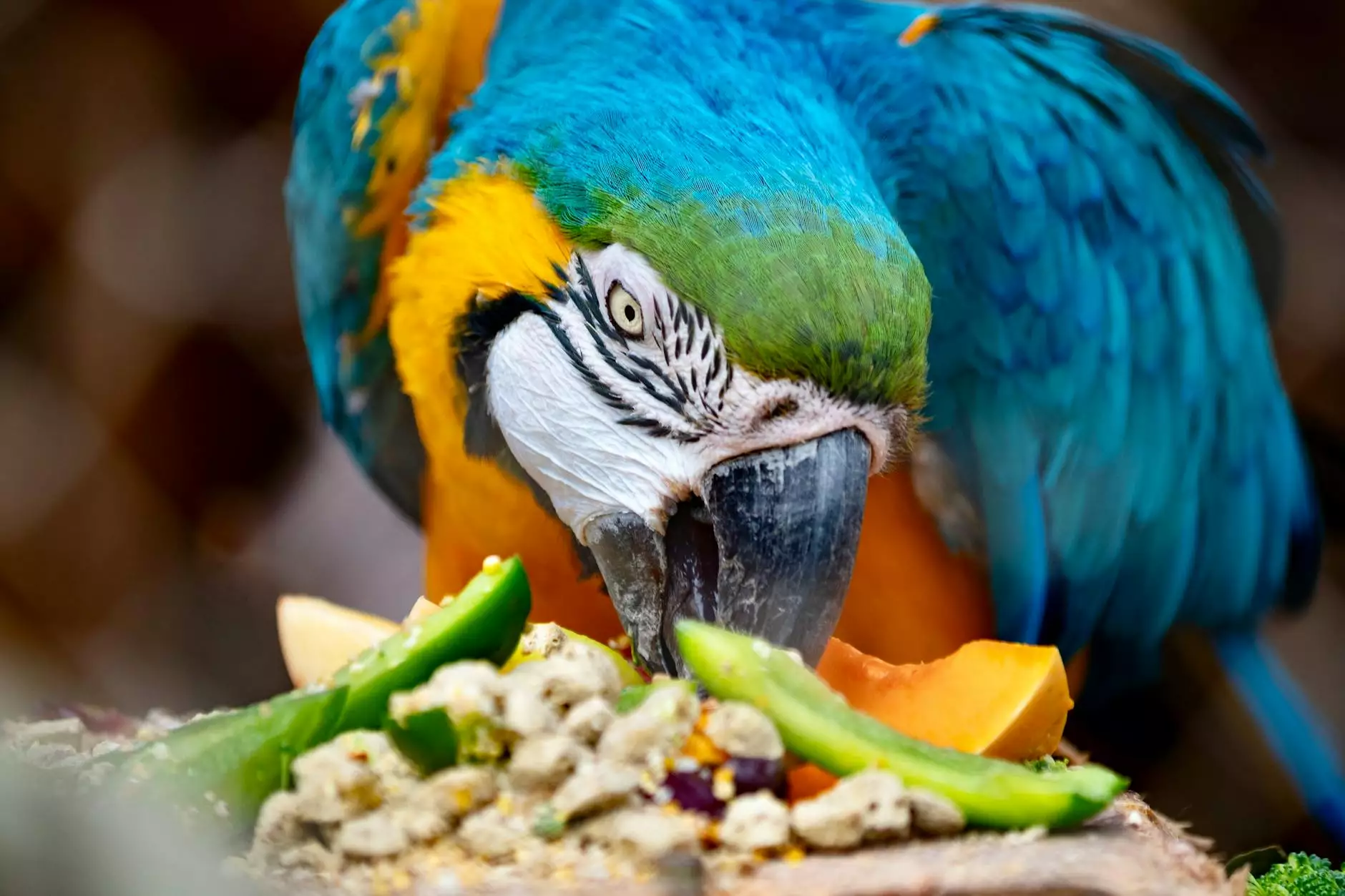Baby Macaw: The Joy of Owning These Colorful Companions

When it comes to exotic pets, few animals can rival the beauty and personality of a baby macaw. These stunning birds are not just visually captivating; they are also highly intelligent and social creatures that can become incredible companions. In this article, we will delve into all aspects of caring for baby macaws, their remarkable traits, and why they are the perfect addition to your home.
Understanding Baby Macaws
Macaws are part of the parrot family and are native to Central and South America. There are several species of macaws, including the Scarlet Macaw, Blue and Gold Macaw, and the Green-winged Macaw. Each species comes with its own unique colors and behaviors. When considering a baby macaw, it's essential to understand what makes them special.
The Allure of Baby Macaws
- Colorful Plumage: Baby macaws are breathtaking to behold. Their vibrant feathers make them one of the most popular pet birds.
- Intelligent Nature: These birds are known for their intelligence. They can learn tricks and mimic sounds, providing endless entertainment.
- Strong Bonds: Baby macaws often develop deep, affectionate bonds with their owners, making them loving companions.
The Different Species of Macaws
Choosing a baby macaw means deciding which species is right for you. Here are some common types:
1. Scarlet Macaw
The Scarlet Macaw is one of the most recognizable species, known for its brilliant red, yellow, and blue feathers. They are social birds that thrive on interaction.
2. Blue and Gold Macaw
The Blue and Gold Macaw is equally popular, characterized by its stunning blue feathers on the top and vibrant yellow underneath. These birds are friendly and enjoy socializing.
3. Green-Winged Macaw
Green-Winged Macaws are larger and have a beautiful green plumage with striking red feathers on their wings. They are gentle giants and make excellent pets.
Caring for Your Baby Macaw
Owning a baby macaw involves understanding their needs for proper care, diet, and environment. Here’s what you need to know:
1. Optimal Diet
A balanced diet is critical for the health of your baby macaw. Their diet should include:
- Pellets: High-quality pelleted food should be the basis of their diet.
- Fresh Fruits and Vegetables: Provide a variety of fruits and veggies daily to ensure they get the necessary vitamins.
- Nuts and Seeds: These should be given in moderation as treats, as they are high in fats.
2. Socialization and Training
Socialization is critical for a baby macaw. They thrive on interaction with humans and other birds. Here are some tips:
- Daily Interaction: Spend quality time with your macaw to help them feel secure and loved.
- Training Sessions: Incorporate training into their daily routine to stimulate their minds and teach them commands.
- Positive Reinforcement: Use treats and praise to encourage good behavior.
3. Housing Requirements
Providing a suitable living environment is essential for your baby macaw's wellbeing:
- Cage Size: Ensure the cage is spacious enough for them to move freely and spread their wings.
- Cage Accessories: Include toys, perches, and mirrors to keep them entertained and stimulated.
- Location: Place their cage in a busy area of your home where they can feel part of the family.
The Personality of Baby Macaws
Understanding the personality traits of baby macaws is crucial for potential owners:
- Affectionate: Macaws are known for their loving nature and enjoy cuddling with their owners.
- Playful: They are highly energetic and love to play, so providing them with toys is essential.
- Vocal: Macaws are naturally vocal and may make a variety of sounds. This can vary between species.
Common Health Issues in Baby Macaws
While baby macaws are generally healthy, they can be prone to certain health issues. As a responsible owner, it's essential to be aware of these potential problems:
- Feather Plucking: This behavioral issue can arise from stress, boredom, or lack of stimulation.
- Obesity: An improper diet can lead to obesity, affecting their overall health.
- Respiratory Issues: Macaws are sensitive to smoke, dust, and other respiratory irritants.
Where to Find Baby Macaws for Sale
When looking to bring a baby macaw into your family, sourcing from reputable breeders is essential. Here are some tips:
1. Reputable Breeders
Always choose breeders who prioritize the health and well-being of their birds. Check for certifications and reviews from previous customers.
2. Pet Stores
Some pet stores specialize in exotic animals and may offer baby macaws. Ensure they have good practices and health guarantees.
3. Adoption Centers
Consider adopting from a bird rescue or sanctuary. There are many macaws in need of loving homes.
The Lifelong Commitment to a Baby Macaw
Owning a baby macaw is not just a temporary decision. These birds can live for 30 years or more, so it’s vital to commit to their care for their entire lifespan. Here are a few considerations:
- Time Commitment: Consider whether you can dedicate time daily for interaction and care.
- Financial Commitment: Be prepared for costs related to food, vet care, and cage maintenance.
- Long-term Planning: Assess your living situation and make sure you can accommodate a macaw for its lifetime.
Conclusion
Owning a baby macaw can be one of the most rewarding experiences for bird lovers. Their beauty, intelligence, and affectionate nature can transform your household into a lively and joyful place. By providing them with the proper care, a loving environment, and sufficient social interaction, you can ensure that your baby macaw will thrive and bring joy to your life for many years to come.
For more information and resources about various pet birds, including the exceptional baby macaw, visit rareexoticbirds.com.au.



